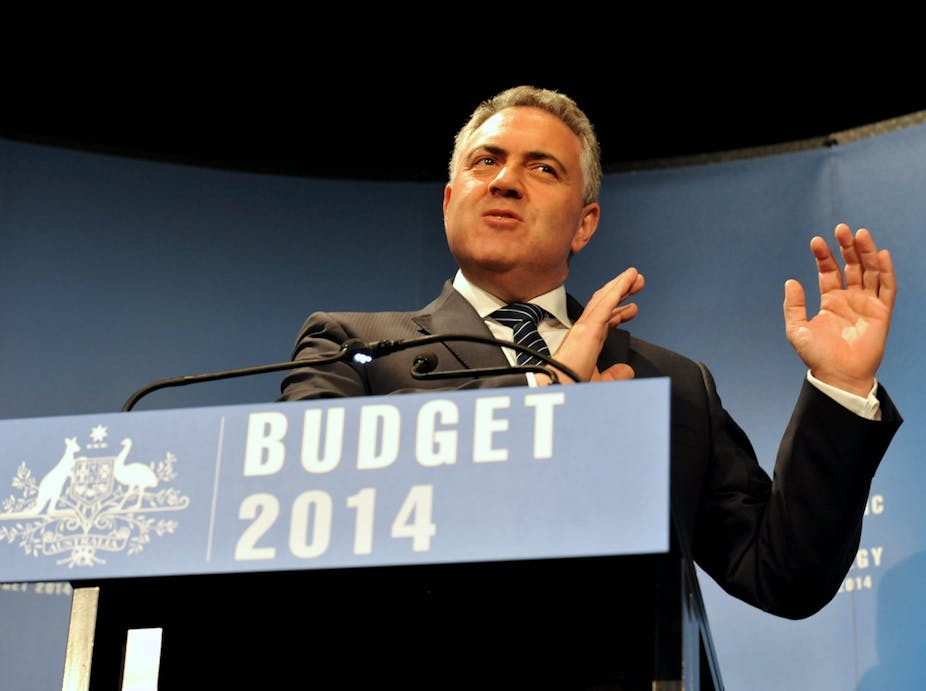Consumer sentiment has tumbled to levels not seen since August 2011, in a post-budget drop economists say does not reflect the real state of the economy.
According to the monthly Westpac Melbourne Institute Index, consumer sentiment fell by 6.8% in May. The fall is comparable to the 7% drop seen after last year’s federal budget.
“The government has done a very good job so far painting a doom and gloom picture to convince people an austere budget is in the nation’s interest,” said University of Canberra economics professor Phil Lewis.
“So if you take this approach you can’t blame people for believing the government when they say these sorts of things.”
The survey confirmed the budget was the key driver of the fall, with a question specifically asking consumers what impact they thought the budget would have on their family finances over the next 12 months.
Only 3.1% thought their finances would improve, while 59.2% thought the budget would lead their finances to worsen. This compares with 45.6% who thought former Labor treasurer Wayne Swan’s 2013 budget would worsen their situation.
“The initial response to a budget can sometimes be an overreaction,” said Westpac economist Bill Evans. “For example, in 2013 the index bounced back by 4.7% in June.”
Despite this, expectations for “family finances over the next 12 months” slumped 23%, to its lowest reading on record.
Concern about the economy has also grown, with the index tracking expectations for “economic conditions over the next 12 months” falling by 14.2% to its lowest level since August 2011.
“The economy is doing fairly well, not as well as the boom period, but inflation is within target, income is rising, the economy is still growing as good or better than the rest of the world and there’s no sign of any real crisis,” Professor Lewis said.
He said whether the sentiment figures bounce will depend largely on how well the government sells its budget message in coming months and years.
“How the government handles the situation to convince people drastic measures are needed, but at the same time convince people not to stop buying things, particularly luxury items, is difficult.
"So far most people would agree they’ve done a pretty bad job.”
Over the medium term, the sentiment index suggests consumers are hopeful the budget will help the economy, with the index tracking expectations for “economic conditions over the next five years” climbing by 11%.
Sinclair Davidson, professor of institutional economics at RMIT, said while the figures look horrible at first glance, there was a clear distinction between the short term and the long term.
“Right now consumers look like they are shell-shocked. But they also think that conditions will be better in five years time. So they understand that there is some short-term pain on the horizon, but expect economics conditions to improve.
"If economic conditions actually do improve then, in retrospect, the budget will be seen as being a positive. The challenge, of course, for the Abbott government will be if economic conditions don’t improve in line with expectations. The other thing to remember is that government has less control over how the economy progresses than they’d like us to think.”

